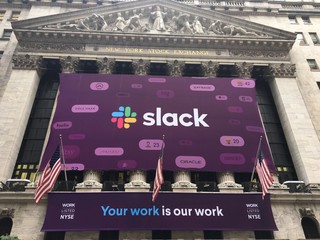Direct Public Offering (DPO), otherwise known as a direct listing, is a process where a company acquires a direct placement in the public market. Most of the private companies have decided to go public using this strategy, selling some of their shares directly to the public on the stock exchange at market price.
How It Works
In this type of offering, the company offers its securities directly to the public to raise capital. The DPO eliminates the intermediaries and lowers the cost of capital of the offering. It is different from the Initial Public Offering (IPO) since the IPO normally has a much bigger cost and needs the participation of third parties like banks and underwriters.
In the case of a direct listing, the issuer is allowed to set the terms of the public offering. In other words, it is always up to the issuer to determine the offering price, the total number of stocks per investor, the settlement date, and an offering period for acquiring these stocks.

This price of conducting a Direct Public Offering goes as follows:
Hiring A Financial Advisor
For starters, a majority of the companies hire a financial advisor whenever they want to go the DPO way. For instance, it can be an investment company that undertakes the offering process. It also takes care of regulatory filings, shares valuation, and investor sentiment.
A good example is the listing of Spotify Technology SA (NYSE: SPOT) that hired Morgan Stanley (NYSE: MS), Goldman Sachs Group Inc (NYSE: GS), and Allen & Co LLC to assist them in preparing the public presentation.
Any firm preparing for a DPO hires a financial advisor. The latter assists it in pricing its shares that are not held by executives or any other affiliates.
Preparation
After the company gets its advisors, it needs to gather its investors and educate them about its business and the share offering. Being an issuer, the company needs to prepare an offering memorandum, which is a document that gives particular and highly detailed information about the firm and the securities.
They can be common stocks, preferred stocks, debt securities, or others. The memorandum will enable the issuing company to attract external investors.
DPO Regulations
What comes next is that the company has to talk with the regulatory body of the country in which it is based. A majority of the private companies are based in the United States, which means that they have to meet the regulatory laws set by the Securities and Exchange Commission (SEC).
Some of the set requirements include the offering of quarterly financial reports, memorandum, articles of incorporation which are documents that establish the existence of a firm in North America, and other needed essential information.
SEC Exemptions
Many of the US-based firms are not needed to register with the SEC since they qualify for various exemptions. Two exemptions exist which include Rule 147 and Rule 504 (or regulation D).
Rule 147 is an interstate exemption that enables firms to sell their securities publicly in the state that they operate in. On the other hand, Rule 504 exempts companies that raise $1 million or less in 12 months through the sale of securities.
Advantages Of A Direct Public Offering For Companies
Most of the firms choose a direct listing since it comes with various benefits:
- There is no lockup period, which means that shareholders can sell their shares immediately and add liquidity to the market.
- The firm’s own choice of the launch date, stock limit per investor, and value offering.
- Absence of huge fees accrued from third parties like bankers and underwriters and not selling the stock at a discount.
- Banks only work as advisors, helping the firm to prepare everything for the public launch.
A DPO appears more lucrative than an IPO for many firms. Those that use IPOs are trying to raise capital, while the ones that use DPOs are not necessarily looking to do that. They may want to benefit from increased liquidity and some freedom to sell their stocks.
Opportunities That Individual Investors Get From DPOs
With a Direct Public Offering, the stocks become readily available to all investors, whether institutional or individuals. Retail investors normally lose out to the large investments with IPOs as stocks. Therefore, DPOs have become a viable alternative for those individuals looking to invest in major projects.
A DPO also enables a firm to attract all types of investors. It makes the market open for everyone. Moreover, a DPO enables the retail investors to learn about a firm as much as the institutional investors and other shareholders do.
DPO vs IPO
Both of these are the main ways through which companies raise funds. But, they have several major differences.
First, with a direct listing, only the outstanding shares are sold without the involvement of underwriters. On the contrary, an IPO creates new shares and involves several third parties.
Secondly, in the case of a direct offering, it has a set of financial advisors who undertake the public preparation process. In the meantime, the firms that choose an IPO go on to hire underwriters or third parties who facilitate the IPO process and charge some commissions for their work.
Thirdly, with an IPO, a firm’s stocks are under a lockup period, meaning that accredited shareholders, investors, and executives cannot sell their shares immediately.
Lastly, a DPO lets executives and other shareholders sell their shares at the market price, with no lockup period. With a Direct Public Offering, the issuing firm prepares its launch by settling the placement date, the offering price, or limits of stocks per investor. No underwriter is needed for that.
Examples Of DPO
There are many examples of firms that are going public using the DPO method. One of the most famous examples is Spotify Technology S.A. (NYSE: SPOT). This music platform approached the Latham & Watkinz law firm and hired investment companies Goldman Sachs Group Inc and Morgan Stanley (NYSE: MS) in 2017.
Unlike what the case would be for an IPO, the companies acted as advisors, instead of undertaking the process. Their initial role was to help Spotify in valuing its shares.
Another notable example is the American software company Slack Technologies Inc (NYSE: WORK). The company went public through a direct listing on the New York Stock Exchange (NYSE).

The DPO is not a recent investment strategy but it has become a popular option for firms and individual investors due to the elite companies that have used it, including Spotify and Coinbase. Jerry Greenfield and Ben Cohen, back in 1984, advertised their ownership stakes of their ice cream businesses using local newspapers for $10.50. in one year, Ben & Jerry’s Ice Cream raised $750,000.
Coinbase DPO
One of the largest direct listings of 2021 is that of Coinbase. Instead of going with an IPO, the firm decided to go public through a direct listing on the Nasdaq Stock Market.
On April 14, 2021, Coinbase became a publicly traded firm with the tickers symbol COIN. That move made Coinbase the first crypto exchange to be traded on the stock market. This event has caught the massive attention of the media.
In general, most of the firms are now choosing to go the DPO way since it provides a wide array of options than the traditional IPO. This strategy has been increasing in popularity in recent years, which has helped the small to midsize companies to avoid the middlemen and high fees. It has enabled these firms to set their terms for their public offering.
Hence Direct Public Offering seems to have brought solutions to the market enabling more investors to participate in these listings.



















